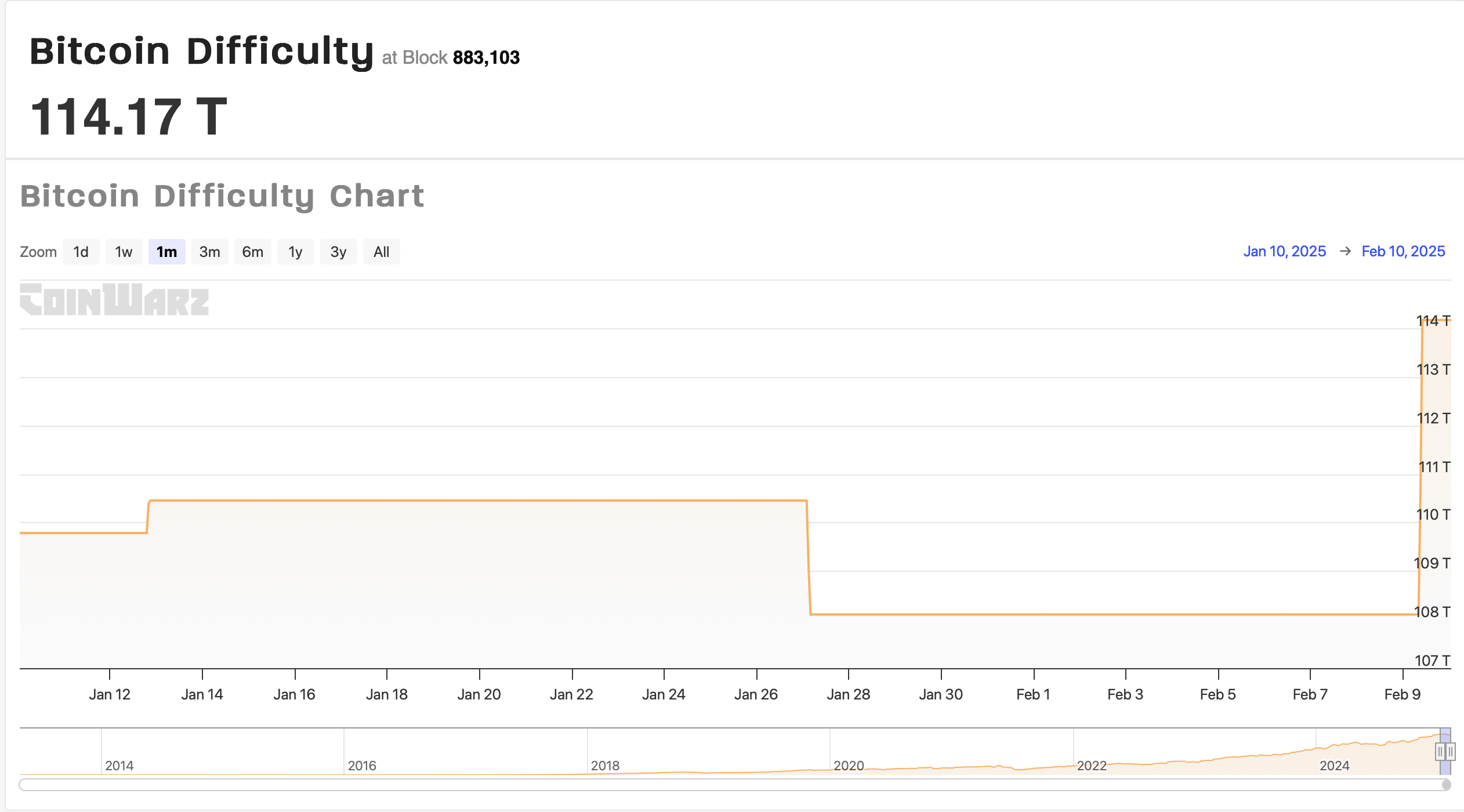[ad_1]
Bitcoin’s computational difficulty leaped by 5.61% at block height 883,008, catapulting its measure to a historic peak of 114.17 trillion, as per the latest network analytics.
Miners Brace for Heightened Challenge as Difficulty Spikes
Following the successful mining of block 883,008, the twisting demands of Bitcoin block validation have intensified by 5.61%, with the system’s current complexity now fixed at 114.17 trillion—a numerical expression of the sheer computational rigor miners must conquer to authenticate transactions and forge fresh blocks onto the ledger.

The uptick follows the 2.12% dip recorded two weeks back at block 880,992. The hashrate is hovering at 819.21 exahash per second (EH/s), signifying a decline of 32.79 EH/s since Feb. 7, 2025. When the mining difficulty intensifies, it essentially increases the volume of hashes a miner must produce to uncover a block.
This number 114.17 trillion does not represent an exact tally of hashes but rather a ratio comparing the present difficulty to Bitcoin’s original baseline from 2009—indicating that mining now is 114.17 trillion times more challenging than it was at the network’s inception. This difficulty arises from Bitcoin’s protocol dynamically adjusting a target hash, a distinct numerical threshold that miners must match or go beneath to succeed.
Despite the difficulty increase and the 32 EH/s decrease, block intervals remain faster than the 10-minute norm, hovering around 9 minutes 29 seconds at 7:30 p.m. Eastern Time on Sunday evening. There is still a noticeable lull in onchain transactional activity, with four blocks currently awaiting confirmation. At present, 73 distinct entities are allocating at least 54.62 kilohash per second (KH/s) or more of SHA256 hashrate to the network.
That small miner, the 54.62 KH/s, represents a meager level of hashrate, amounting to 54,620 hashes per second. The likelihood of this person’s modest setup discovering a block is extremely slim compared with even some of the earliest application-specific integrated circuit (ASIC) mining devices. By contrast, Foundry—the top mining pool by hashrate—dedicates 257,000,000,000,000,000,000 hashes per second to the blockchain.
[ad_2]

